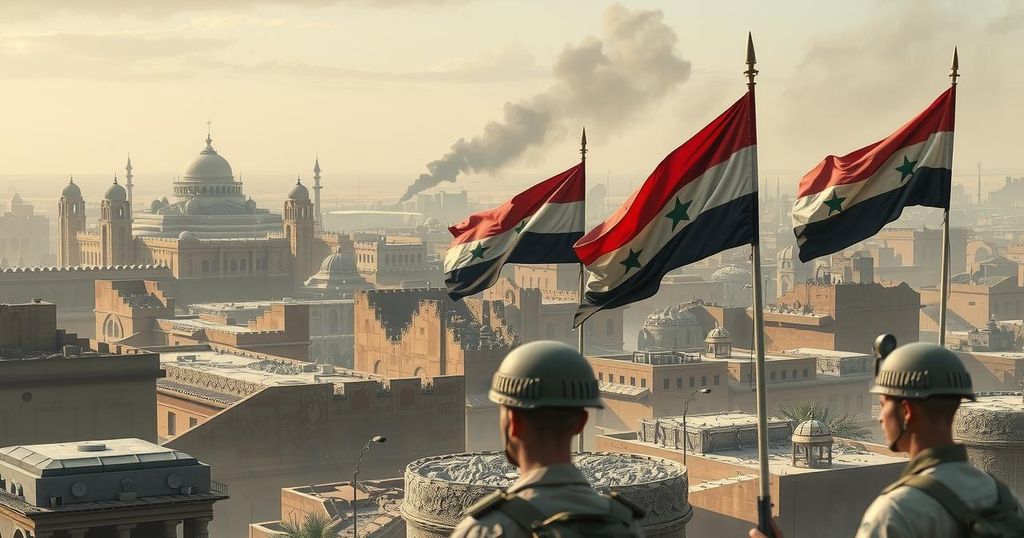Recent Developments in Sudan’s Civil War and Their Implications
The Sudanese army has scored major victories over the RSF in Khartoum, marking a potential turning point in the civil war. Despite these successes, the conflict remains unresolved with ongoing territorial disputes, a devastating humanitarian crisis, and no immediate prospects for peace. The situation risks leading to partition as both sides continue to entrench themselves further in the fighting.
Sudanese armed forces have achieved significant victories in Khartoum against the Rapid Support Forces (RSF) as the civil war, now approaching its two-year anniversary, endures. The army’s recent successes include retaking the airport, which the RSF seized at the onset of the conflict in April 2023. Army chief Abdel Fattah al-Burhan declared that Khartoum is “free” following these victories, indicating a potential shift in the war’s dynamics.
The recapture of key areas like the presidential palace symbolizes a turning point for the Sudanese Armed Forces (SAF). With control over Khartoum, the army aims to strengthen its position both on the battlefield and in diplomatic negotiations. Control of the capital could enhance the SAF’s leverage as it has so far refused peace talks with the RSF, which is critical for future engagements with regional leaders.
Nonetheless, the prospects for peace remain bleak as both the army and RSF maintain significant territorial control, with fierce skirmishes continuing, particularly in Darfur and Kordofan regions. The ongoing dispute regarding the RSF’s integration into the national armed forces exacerbates the conflict, and no political resolution is imminent despite increasing violence that targets urban centers.
The humanitarian crisis in Sudan is alarming, with over 12 million people displaced and dire food shortages affecting nearly 25 million. The ongoing fighting has severely disrupted agricultural production and eroded the health care system, leading to disastrous living conditions for families seeking shelter. Both factions have impeded humanitarian access, deepening the crisis.
Experts caution that Sudan may face fragmentation akin to South Sudan, as RSF and its allies have indicated intentions to establish a breakaway government. Current conditions suggest continued warfare, with both sides entrenched in their positions, while the international community pushes for negotiations without much progress in ensuring a peaceful resolution.
In summary, the Sudanese civil war has witnessed notable military developments, particularly with the SAF gaining control over critical areas like Khartoum. However, the underlying issues fueling the conflict remain unresolved, and the humanitarian repercussions continue to escalate. The potential for partition further complicates the situation, as both factions remain entrenched in their positions with little hope for immediate peace. The international community’s role in facilitating dialogue will be crucial going forward.
Original Source: www.aljazeera.com




Post Comment